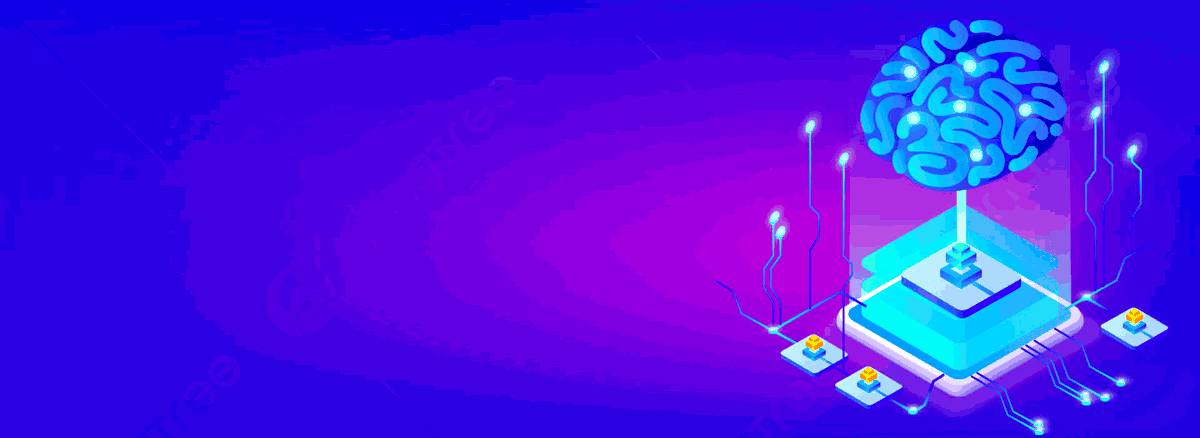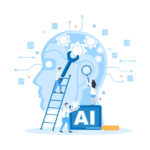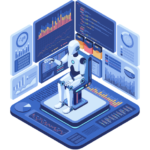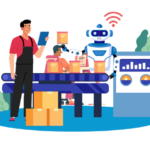
Healthcare Applications of a Chatbot have revolutionized patient care, offering unprecedented 24/7 access to accurate, personalized health assistance.
In recent years, healthcare has seen a surge in the use of technology to improve its services and patient outcomes. One such technology that has gained popularity is chatbots.
What is a healthcare chatbot?
A healthcare chatbot is a computer program designed to interact with patients, healthcare professionals, and administrative staff to provide healthcare services. It uses artificial intelligence (AI) to simulate human conversation and can assist in a range of healthcare-related tasks.
Chatbots are computer programs designed to simulate human conversation using artificial intelligence and natural language processing. They offer many benefits to healthcare, including improving patient care, streamlining administrative processes, and enhancing medical diagnosis and treatment.
Chatbots are revolutionizing healthcare by providing round-the-clock support, answering common healthcare questions, and offering personalized health advice.
They assist healthcare professionals in making informed decisions regarding patient treatment and provide resources for mental health support. Furthermore, chatbots promote medication adherence by sending reminders and tracking medication usage.
They have the potential to improve accessibility to healthcare by providing remote consultations and offering healthcare information in multiple languages.
How do healthcare chatbots work?
Healthcare chatbots use natural language processing (NLP) to understand and respond to user input, using a combination of pre-programmed responses and AI-powered algorithms. They can be integrated with electronic health records (EHRs), medical devices, and other healthcare technologies to provide personalized and efficient healthcare services.
What are the benefits of using healthcare chatbots?
Healthcare chatbots offer numerous benefits, including 24/7 accessibility, personalized care, streamlined administrative processes, improved diagnostic accuracy, and increased healthcare accessibility. They can also help reduce healthcare costs and alleviate the burden on healthcare providers.
Improving Patient Care
Chatbots have the potential to revolutionize patient care by enhancing the patient experience. They offer round-the-clock support, answering common healthcare questions, and providing personalized health advice. In this section, we explore the ways in which chatbots can improve patient care.
24/7 Access to Healthcare Support
Chatbots provide patients with access to healthcare support around the clock, regardless of location. Patients can receive real-time health advice from the comfort of their own homes, reducing the need for in-person consultations and minimizing healthcare costs. Moreover, chatbots can help patients make informed decisions about their health and well-being.
Answering Common Healthcare Questions
Chatbots can provide patients with answers to common healthcare questions, such as symptoms and treatment options for a particular condition. This can help patients feel more in control of their health and reduce anxiety related to seeking healthcare. Additionally, chatbots can provide patients with educational resources on health and wellness.
Personalizing Health Advice
Chatbots can personalize health advice by analyzing patient data, such as health history and lifestyle factors, and providing tailored recommendations for diet, exercise, and other health-related behaviors. Additionally, chatbots can provide reminders for medication and appointments, improving medication adherence and reducing the risk of missed appointments.
Streamlining Administrative Processes

In addition to improving patient care and medical diagnosis, chatbots can streamline administrative processes in healthcare. These automated tools can help Patients and Healthcare providers save time and resources, ultimately leading to a more efficient healthcare system.
One of the most significant benefits of chatbots is their ability to automate paperwork. By integrating chatbots into healthcare systems, patients can complete forms and submit important information remotely, thereby reducing wait times and avoiding the need for in-person visits.
Chatbots can also assist with appointment scheduling, which can be a time-consuming process for healthcare providers. With the help of a chatbot, patients can book appointments, reschedule or cancel them, and receive reminders, all with minimal involvement from healthcare staff. This service is particularly useful in emergency settings, where patients require prompt attention and care.
| Benefit | Explanation |
|---|---|
| Insurance Verification | Chatbots can help patients verify their insurance coverage, reducing the workload of healthcare staff and minimizing errors in the billing process. |
| Medical Record Management | Chatbots can help patients manage their medical records by providing access to relevant documents, such as lab results and test reports, at any time and from any place. This service can also reduce the amount of time healthcare providers spend searching for patient records and ensure they have up-to-date information available. |
The use of chatbots for administrative processes can also improve communication between patients and healthcare providers. Patients can use chatbots to ask questions about their healthcare plan, receive reminders about upcoming appointments or tests, and even receive personalized health advice.
Automation and Efficiency
Overall, chatbots can help automate administrative processes, reduce wait times, and improve communication between patients and healthcare providers. By integrating this technology into healthcare systems, patients and healthcare providers alike can enjoy a more efficient and streamlined experience.
Enhancing Medical Diagnosis – Healthcare Applications of a Chatbot
Chatbots are increasingly being utilized in medical diagnosis to improve diagnostic accuracy. By analyzing symptoms and medical history, they can provide preliminary assessments for healthcare providers and suggest potential diagnoses.
One notable example is the Babylon Health chatbot, which uses AI to analyze symptoms and provide personalized health advice. In a study conducted by the company, the chatbot correctly diagnosed conditions with a 90% accuracy rate, compared to 80% for human doctors.
While chatbots should not replace the expertise of healthcare professionals, they can serve as a valuable tool in providing preliminary assessments and narrowing down potential diagnoses. Additionally, they can assist in identifying rare conditions or diseases that may be overlooked by healthcare providers.
| Benefits of chatbots in medical diagnosis: |
|---|
| Improved accuracy in preliminary assessments |
| Assistance in identifying rare conditions |
| Providing personalized health advice |
It’s important to note that chatbots are not a replacement for in-person consultations and diagnosis by healthcare professionals. However, they can be a valuable tool in the healthcare industry, providing a faster and more accessible means of preliminary assessment and diagnosis.
Assisting in Treatment Decisions – Healthcare Applications of a Chatbot
Chatbots can play a vital role in helping healthcare professionals make informed treatment decisions. By providing evidence-based recommendations and suggesting potential interventions, chatbots can support medical professionals in delivering optimal patient care.
Through the use of machine learning algorithms, chatbots can analyze patient data to determine potential diagnoses and treatment options. This can include reviewing medical histories, current symptoms, and test results to provide medical professionals with a comprehensive understanding of a patient’s condition.
By assisting in treatment decisions, chatbots can also help reduce the risk of medical errors and optimize patient outcomes. By providing healthcare professionals with real-time insights and decision support, chatbots can ensure that patients receive the most accurate and effective treatments for their conditions.
Examples – Healthcare Applications of a Chatbot
One example of chatbots assisting in treatment decisions is the use of the Babylon chatbot, which leverages artificial intelligence to provide personalized health advice to patients. Through the chatbot, patients can receive information about their health conditions and determine appropriate treatment options, including suggestions for lifestyle changes or medication adjustments.
Babylon has been shown to be effective in providing accurate diagnoses and treatment plans, making it a valuable tool for healthcare professionals.
Another example is the AiCure chatbot, which uses facial recognition technology to ensure medication adherence and monitor patient progress.
The chatbot is particularly useful for patients with chronic conditions who require complex medication schedules, ensuring that they take the right medications at the right time and in the correct dosage.
By monitoring medication usage, the chatbot can also provide insights into patient progress and suggest potential treatment adjustments to healthcare professionals.
Overall, chatbots have the potential to revolutionize the way healthcare professionals make treatment decisions.
By providing decision support and real-time insights, chatbots can ensure that patients receive the most accurate and effective treatments for their conditions, improving patient outcomes and reducing the risk of medical errors.
Supporting Mental Health – Healthcare Applications of a Chatbot

Chatbots have the potential to support mental health by providing round-the-clock assistance for individuals in need. With the increasing demand for mental health services, chatbots can fill the gap by offering personalized support.
One of the main benefits of chatbots in mental health is their ability to provide counseling. Conversational agents can offer a non-judgmental ear, listen to concerns, and suggest coping mechanisms. Additionally, chatbots can monitor mood changes and identify warning signs of depression or anxiety.
This enables individuals to seek help and support before their condition worsens.
Furthermore, chatbots can offer resources for stress management. They can provide breathing exercises, meditation techniques, and mindfulness practices to help individuals manage their stress levels. These resources can be accessed anytime, anywhere, providing immediate support for those in need.
Ensuring Medication Adherence – Healthcare Applications of a Chatbot
One of the biggest challenges in healthcare is ensuring that patients take their medication as prescribed. Non-adherence to medication can lead to ineffective treatment, worsening of symptoms, and even hospitalization. Fortunately, chatbots can play a significant role in promoting medication adherence.
Chatbots can send automated reminders to patients at scheduled times to take their medication.
This can be particularly helpful for patients who have multiple medications or complex dosing schedules. Additionally, chatbots can provide patients with information about their medication, including potential side effects and interactions with other drugs.
Another way chatbots can promote medication adherence is through tracking medication use. Chatbots can record when a patient takes their medication and send alerts to healthcare providers if a patient is not adhering to their medication regimen.
This early detection can allow healthcare professionals to intervene and prevent any potential complications.
In addition to reminders and tracking, chatbots can also provide medication-related information. Patients can engage in conversations with chatbots to ask questions and receive immediate feedback.
This can be helpful for patients who may not have access to a healthcare provider or who have difficulty understanding their medication instructions.
Chatbots can also be programmed to provide education on medication adherence, offering tips and strategies to help patients remember to take their medication. These conversations can be tailored to the patient’s specific needs and preferences, increasing the likelihood of successful adherence.
Overall, chatbots can be a powerful tool in promoting medication adherence and improving patient outcomes. By providing reminders, tracking, and education, chatbots can help patients stay on track with their medication regimen and achieve better health outcomes.
Improving Accessibility to Healthcare – Healthcare Applications of a Chatbot
Chatbots have the potential to improve accessibility to healthcare, particularly for individuals who face geographical or financial barriers to care. With the use of chatbots, patients can receive remote consultations and connect with healthcare professionals from the comfort of their homes.
Moreover, chatbots can offer health information in multiple languages, making it easier for non-English speakers to access healthcare services. This is particularly important in countries with diverse populations, where communication barriers can be a major obstacle to receiving healthcare.
For individuals who are unable to leave their homes due to mobility issues or chronic illnesses, chatbots can provide a lifeline to medical care.
Patients can use chatbots to schedule appointments, receive medication reminders, and access personalized health advice without leaving their homes. This can greatly improve their quality of life and overall health outcomes.
FAQs -Healthcare Applications of a Chatbot
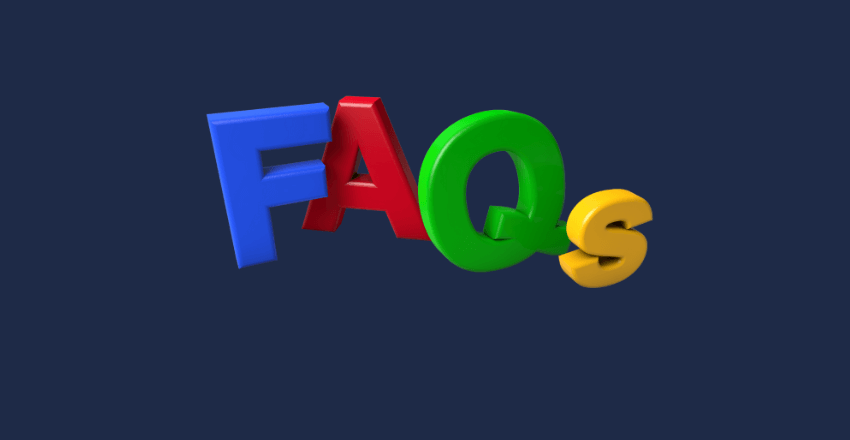
As chatbots continue to gain popularity in the healthcare industry, many people may have questions about their use and effectiveness. Here are some commonly asked questions and answers:
Are healthcare chatbots safe and secure?
Yes, healthcare chatbots are designed with security and privacy in mind. They use encryption and secure data transfer protocols to protect user information and comply with healthcare regulations such as the Health Insurance Portability and Accountability Act (HIPAA).
Can healthcare chatbots replace human healthcare professionals?
No, healthcare chatbots are designed to assist healthcare professionals, not replace them. They can help healthcare professionals save time and improve patient care by handling routine tasks and offering recommendations, but they cannot replace the human touch and expertise of healthcare providers.
Are healthcare chatbots widely available?
Yes, healthcare chatbots are becoming increasingly common in hospitals, clinics, and other healthcare settings. Many healthcare providers are implementing chatbots to improve patient care, streamline administrative processes, and enhance healthcare accessibility.
As with any new technology, it is natural to have questions and concerns about healthcare chatbots. However, these innovative tools have enormous potential to improve healthcare services and provide better care for patients.
Benjamin Bale is a distinguished expert in the field of AI development and an esteemed author for the “Hire AI Developer” blog. With a remarkable decade-long experience in the industry, Benjamin has cemented his reputation as a leading authority in AI app and website development, as well as AI backend integrations. His profound passion for AI and its transformative potential is evident in every aspect of his work.
Benjamin’s journey into the world of AI began at Edinburgh University, where he pursued his studies in AI and Mathematics. It was during this time that he cultivated a deep understanding and fascination for the subject. Throughout his career, Benjamin has accumulated extensive experience working with industry giants such as Goldman Sachs, Tencent, and Ali Express. These invaluable experiences have not only sharpened his skills in integrating existing systems with AI APIs but have also solidified his status as a consummate professional in the field.
Currently residing in the vibrant city of London, Benjamin finds solace in his role as both an author and developer. Beyond his professional endeavors, he takes great joy in the company of his faithful canine companion, Chad, and indulges his passion for snowboarding in the picturesque mountains of France. Benjamin’s unwavering dedication to advancing AI technology, combined with his wealth of knowledge and practical expertise, make him an invaluable asset to the “Hire AI Developer” team and an invaluable resource for readers seeking profound insights into the realm of AI.

